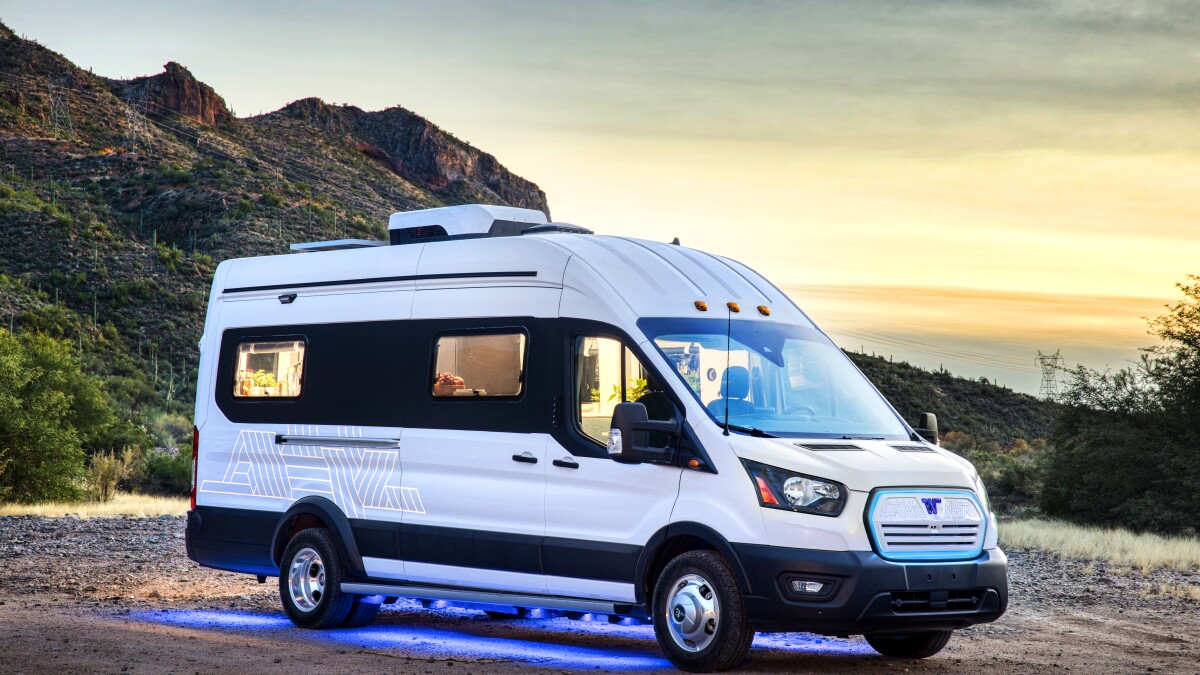This article explores the impact of technology on vanlife and road travel. It covers the evolution of technology and its effect on the vanlife community, from the rise of social media to the increasing availability of internet connectivity. The article also explores the role of technology in making vanlife more accessible and sustainable, from solar panels and lithium batteries to electric and hybrid vehicles.
Vanlife and road travel has become increasingly popular in recent years, as more people seek to embrace a nomadic lifestyle and explore the world on their own terms. But this lifestyle is not without its challenges, from the need for reliable internet connectivity to the need for sustainable energy sources.
Fortunately, technology has played a major role in making vanlife and road travel more accessible and sustainable and has helped to connect people from all over the world who share a passion for life on the road. In this article, we’ll explore the impact of technology on vanlife and road travel, from the rise of social media to the increasing availability of internet connectivity.
The Rise of Social Media

One of the most significant impacts of technology on vanlife has been the rise of social media. Platforms like Instagram, YouTube, and Facebook have allowed vanlifers to share their stories and connect with other travelers from all over the world. Social media has also been instrumental in helping to grow the vanlife community, making it easier for people to connect and share tips, tricks, and advice.
Internet Connectivity
Another major impact of technology on vanlife has been the increasing availability of internet connectivity. In the past, vanlifers often had to rely on public Wi-Fi or cellular data to stay connected, but advances in technology have made it possible to bring high-speed internet to even the most remote locations. Mobile hotspots, satellite internet, and cellular boosters are just a few of the tools that vanlifers now use to stay connected on the road.
Solar Panels and Lithium Batteries
Another key area where technology has impacted vanlife is in the realm of sustainable energy. Vanlifers have long relied on propane, gasoline, and diesel fuel to power their vehicles and appliances, but the rise of solar panels and lithium batteries has made it possible to go off-grid and rely on renewable energy sources instead.
Solar panels and lithium batteries have become increasingly affordable and efficient, making it possible for vanlifers to power everything from their lights and appliances to their water pumps and air conditioners.
Electric and Hybrid Vehicles
As the world becomes more conscious of its impact on the environment, electric and hybrid vehicles have become popular options for vanlifers looking to reduce their carbon footprint. These vehicles offer a range of benefits, from lower fuel costs to reduced emissions, and have become more widely available in recent years. In addition, advances in battery technology have made it possible to travel long distances on a single charge, making electric and hybrid vehicles a viable option for vanlife and road travel.
Smart Home Technology
Smart home technology has also had an impact on vanlife, making it possible to control everything from your lights and thermostat to your security system and entertainment center from a single app. Devices like smart thermostats, smart locks, and smart speakers have become increasingly popular with vanlifers, allowing them to automate their living space and make their lives on the road more comfortable and convenient.
The Impact on Community
Technology has not only impacted vanlife in terms of individual travelers but also the vanlife community as a whole. Social media has made it possible for vanlifers to connect with others worldwide, share their experiences, and provide support and advice. In addition, online forums and groups have become popular places for vanlifers to ask questions and get advice from others who are living the same lifestyle.
The Potential Draw
One of the potential drawbacks of technology in vanlife is that it can be a double-edged sword. While it has made it possible for vanlifers to stay connected and share their experiences, it can also lead to a sense of isolation and disconnection from the natural world. Some vanlifers have expressed concerns that the constant need to stay connected and share their experiences online can distract from the beauty and simplicity of life on the road.
Another potential drawback of technology in vanlife is the issue of over-reliance. While solar panels, lithium batteries, and other sustainable energy sources have made it possible for vanlifers to go off-grid, they can also lead to a sense of over-reliance on technology. It’s essential for vanlifers to remember that technology can fail and that it’s always important to have backup plans in place.
The Future of Technology and Vanlife

As technology continues to evolve, it’s clear that it will continue to have an impact on vanlife and road travel. From the rise of electric and hybrid vehicles to the increasing availability of high-speed internet, technology will continue to make life on the road more accessible and sustainable.
At the same time, it will be important for vanlifers to strike a balance between the benefits of technology and the importance of disconnecting from it and embracing the beauty and simplicity of life on the road.
Conclusion
Technology has had a significant impact on vanlife and road travel, from the rise of social media to the increasing availability of sustainable energy sources. While it has brought many benefits to the vanlife community, it’s important for vanlifers to remain mindful of the potential drawbacks of over-reliance and disconnection from the natural world.
As technology continues to evolve, it will be up to vanlifers to strike a balance between the benefits of connectivity and the importance of disconnecting from it and embracing the beauty and simplicity of life on the road.

